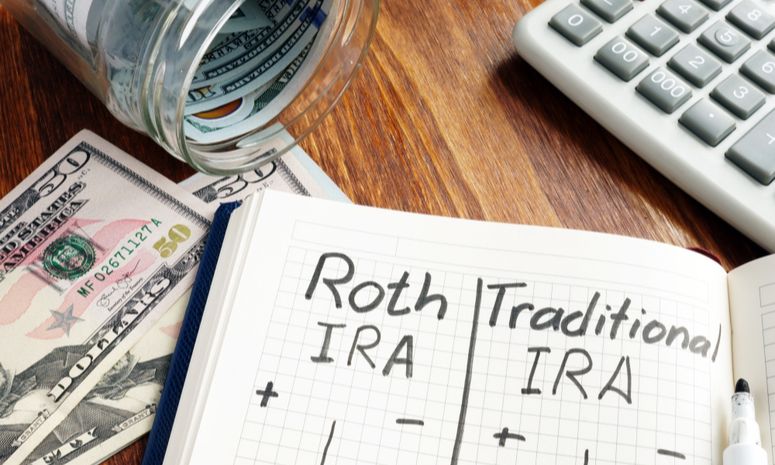An individual retirement account, more commonly known as an IRA, is a kind of savings vehicle that may be used by investors who are putting money away for their retirement. The Individual Retirement Account (IRA) was developed to provide investors with a vehicle for lowering their overall tax burden while simultaneously increasing their capacity to save money. Investors under the age of 49 are eligible to receive a maximum annual contribution of $6,000 from the federal government into an individual retirement account (IRA) for the years 2021 and 2022.
Individual retirement accounts (IRAs) may be used in conjunction with employer-sponsored 401(k) plans; in certain cases, they can be a suitable alternative to such plans. They offer the benefit of enabling a broad variety of investments, which is one of their many advantages.
Before we go into the many investment opportunities available with an IRA, we must first have a solid understanding of how IRA accounts might vary. Contributions to a standard individual retirement account (IRA) may be deducted from the investor's taxable income, but any profits will be subject to taxation when the funds are withdrawn. On the other hand, contributions to a Roth IRA are subject to taxation when made, but the account holder may withdraw their entire balance after reaching age 59 1/2 tax-free.
What Kinds of Investments Can Be Bought Using an IRA
Individual Stocks
You are eligible to invest investments in publicly listed companies using your individual retirement account (IRA). Invest in large cap blue chip companies. Invest in the stock of fledgling technology companies. Invest in equities from other countries. You are eligible to deposit it in your individual retirement account (IRA) if it may be done via your broker.
Mutual Funds
You can buy shares of mutual funds in case you don't understand what securities to put your money into. They are structured so that the money deposited from investors is pooled and then used to build an investment portfolio comprising bonds, stocks, and other investments based on a specific investment strategy. It is possible to put money into mutual funds designed to replicate the performance of the entire stock market, track the performance of specific indexes, or give investors exposure to certain markets and industries or specific asset classes. Investments in certain mutual funds can be accomplished regularly and automatically frequently through various brokers, such as Vanguard.
Exchange-Traded Funds
ETFs are similar to mutual funds but trade more closely with stocks. They are priced the same as stocks and can be traded throughout the day, which is contrary to mutual funds, which are only evaluated daily at the end of the day. They usually have minimal operating costs, and they can buy a limited amount of or fractional shares at times.
Bonds
It is prudent to include some bonds in the portfolio of an individual retirement account (IRA) for those who want to diversify their holdings and those who are getting closer to retirement age. An investor may lend money to a government or firm via the purchase of bonds, and in return, the investor would get consistent interest payments. Treasury bonds issued by the United States are almost risk-free investments that also provide a steady dividend.

When it comes to bonds, the easiest way to avoid paying taxes on any gains or income is to deposit taxable bonds into an individual retirement account (IRA). Because of the existing tax advantages, tax-free bonds, such as municipal bonds, are not the best investment option for individual retirement accounts (IRAs). Putting municipal bonds in an ordinarily taxable account would result in a greater return on investment for you. It is important to be aware that mutual funds are dedicated only to bonds.
REITs
A real estate investment trust, sometimes known as a "REIT," is a sort of stock that essentially enables investors to buy shares in various real estate properties. Real estate investment trusts (REITs) exist for office buildings, industrial areas, residential complexes with several families, and even hotels. Because they are obligated by law to transfer most of their net income to their shareholders, real estate investment trusts (REITs) are notorious for paying out hefty dividends. Because their dividends are often taxed at a higher rate than most other equities, real estate investment trusts (REITs) are acceptable investments for a Roth IRA.

Cash
It is completely OK to retain some cash on hand in an individual retirement account (IRA) since doing so may give you the flexibility to buy assets quickly. In addition, cash has the potential to generate income, particularly via the acquisition of certificates of deposit (CDs). Having several certificates of deposit (CDs) with a range of interest rates and maturities is a common form of cash management.




